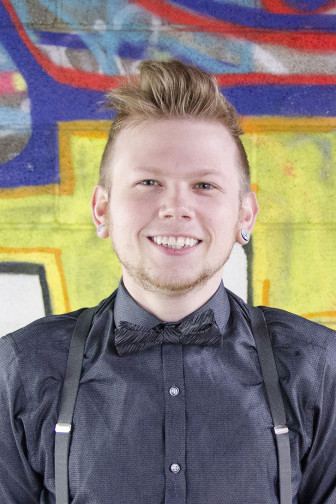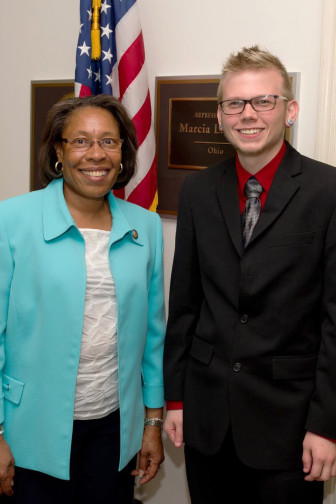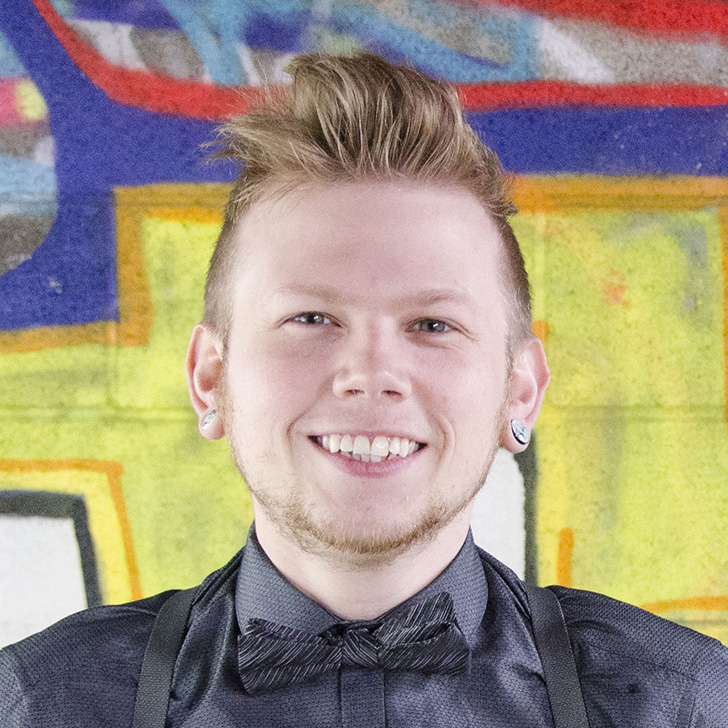 For many of my teenage foster years, I was in a residential treatment facility. I was told what to do, where to do it and how to feel about it. Anything outside that was noncompliance. After so long you begin to learn how to listen quietly; you learn your voice as a foster youth is disposable.
For many of my teenage foster years, I was in a residential treatment facility. I was told what to do, where to do it and how to feel about it. Anything outside that was noncompliance. After so long you begin to learn how to listen quietly; you learn your voice as a foster youth is disposable.
It was during my transition to an independent living apartment at 18 that my caseworker said to me, “Alex you sound like you have a lot of thoughts about how the foster system can change. Do you know what a youth advisory board is?”
I didn’t think such organizations existed. Through sharing my experiences with this group of passionate young people, I began to become a part of the movement to have my voice heard.
Not to change my experience, but to improve it for youth who will come after me. At any given moment 400,000 youth are in our foster care system, and 26,000 of them will age out, many without connections to any supportive adults and in some cases housing.
In our child welfare system, the child’s voice is silenced. When a child reports allegations of further victimization by either caseworkers or foster parents, the burden of proof is on the child. This is a far cry from how the system removed them in the first place.
One assumes that the government provides the best for its children. After all, it removes them from an unsafe environment and places them into a safe one.
It is widely known that this is not always the case. This is not to say that caseworkers don’t do good work, because they do, but good well-intentioned individuals are bound by an ineffective system full of outdated adult-informed policies.
It was the recognition of the need to reform these outdated policies and the importance of foster youth voices that Congressional Foster Youth Shadow Experience was born. This event brings young adults who have experienced foster care to Washington, where they receive professional training and education. On the final day, they shadow a congressional representative.

Foster youth Alex McFarland with Rep. Marcia L. Fudge, D-Ohio, during the 2012 Congressional Foster Youth Shadow Experience.
Because of my advocacy work, FosterClub selected me to participate in the first ever Congressional Foster Youth Shadow Experience. In 2012, I shadowed Rep. Marcia L. Fudge, D-Ohio.
The week was a whirlwind of activities: We went through several sets of training; a few of us even went behind the scenes on Capitol Hill; and I was present for the release of a bill designed to improve educational outcomes for foster youth. When I got home it was all I could talk about. I felt empowered. I felt invincible. I had a voice.
Afterward I stayed engaged with FosterClub, eventually landing a job working on federal policy and system change, including coordination of Shadow Experience. This year, I am leading the training section of Shadow Experience, which I believe is the most important component. It is the staff’s role to ensure youth feel supported and equipped to enter Congress with confidence.
The skills gained during their training academy are lifelong skills. During their preparation they learn professionalism and how to share their story strategically, as well as governmental and national policy processes. For many of these youth it is the first time they have ever left their state. This is a memorable moment. This is their moment to discover their voice and share it with the world.
This is the fourth year of the Shadow Experience. We have 65 young adults who will shadow their representative, visit the White House and have opportunities to interact with high-ranking officials. The experience has come quite far since my experience with only 29 other young adults. Knowing that I get to take part in shaping the experience for this year’s cohort is an honor.
The Shadow Experience brings together allies for foster youth. FosterClub, Casey Family Programs, National Foster Youth Institute, the Congressional Caucus on Foster Care, Foster Youth in Action and Foster Care Alumni of America built this opportunity for foster youth to comprehend the power of their voice. This year, the participating 65 congressional members will donate their time for foster youth voices to be heard on Capitol Hill.
Still the work does not end with Shadow Experience. For many youth, as it was for me, this will only be the beginning of their journey. In order to continue to have their voices heard, they need supportive adults. They need adults who understand what it means to build a youth-adult partnership; not only for the development of their case plan, but to improve a system that despite being designed to protect children continually fails to meet the needs of those it serves.
Foster youth need allies in their movement. Like other movements, it has begun from a group of individuals who for far too long were not being heard.
Alex McFarland is a policy coordinator at FosterClub and a foster youth.
































